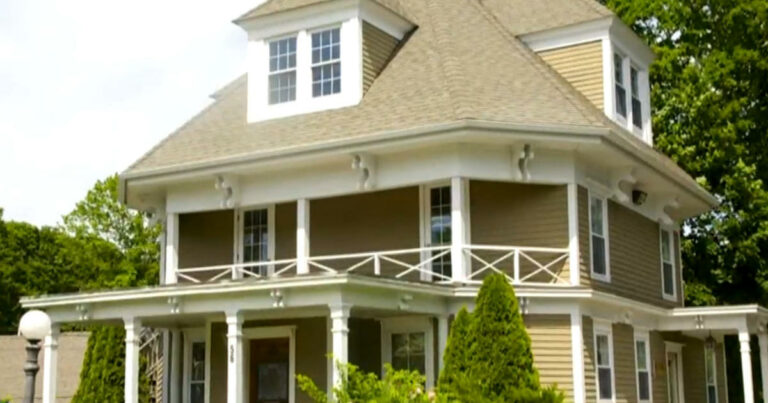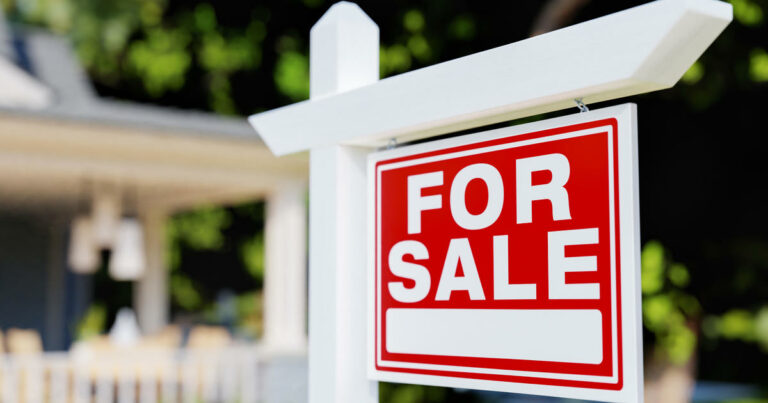The Good Brigade/Getty Images; Illustration by Austin Courregé/Bankrate
Key takeaways
Existing-home sales in July 2024 rose 1.3 percent from the previous month, ending four straight months of declines, according to the National Association of Realtors.
The nationwide median sale price was $422,600, up 4.2 percent from last year and the highest July median on record.
Inventory in July continued to inch up, reaching a 4.0-month supply — a sign that buyers may be gaining more leverage in the market.
The housing market reversed course slightly in July 2024, showing a slight increase in sales for the first time in four months, a new report by the National Association of Realtors (NAR) shows. Sales of existing homes rose 1.3 percent from last month, which marks an end to four consecutive months of declines but is still 2.5 percent lower than one year ago. Meanwhile, the median home-sale price dropped slightly from June’s all-time high but still marked the highest median price on record for the month of July, according to NAR Chief Economist Lawrence Yun.
High mortgage rates have contributed to the sluggish sales figures. While rates have thankfully remained below the 8 percent mark briefly seen in October 2023, they are still hovering between 6.5 and 7 percent. The average rate on a 30-year fixed-rate loan was 6.62 percent as of August 21, according to Bankrate’s most recent survey of large lenders. Combined with the historically high prices, that means affordability challenges remain daunting for homebuyers.
The fate of the housing market in the coming months will be dictated in part by the direction of mortgage rates.
— Mark Hamrick, Bankrate Senior Economic Analyst
“The fate of the housing market in the coming months will be dictated in part by the direction of mortgage rates, as well as the health of the broader economy,” says Mark Hamrick, Bankrate’s senior economic analyst. “The market could benefit from a combination of tailwinds, if they were to develop and are sustained.”
Existing-home sales finally inch upward
The count of existing-home sales includes all completed resales, including single-family houses, condos, townhouses and co-ops. According to NAR, the number of sales nationally increased 1.3 percent month-over-month to an annual pace of 3.95 million transactions in July 2024. While that’s the first increase since Q1, it’s still a 2.5 percent decrease from last year.
“Despite the modest gain, home sales are still sluggish,” Yun said in a statement.
Regionally, the Northeast saw the biggest sales increase, up 4.3 percent from June and 2.1 percent from July of last year. In the West, sales rose 1.4 percent both month-over-month and year-over-year. Sales in the South rose 1.1 perent from June but were down 3.8 percent from last year, and in the Midwest sales were flat in July and down 5.2 percent from July of last year.
Days on market
Properties typically remained on the market for 24 days in July, up slightly from 22 days in June and 20 days in July of last year. Selling times are a crucial measure at any time of year, but especially during the peak spring and summer selling seasons.
Home prices hit new July record
The nationwide median sale price for existing homes in July clocked in at $422,600. That’s down slightly from June’s all-time high of $426,900, mostly due to seasonality, but it’s still an increase of 4.2 percent from last year and the highest July median on record. This month’s jump marks 13 consecutive months of year-over-year price increases.
All four geographic regions again experienced annual price increases in July. The West continued to have the highest median price by far at $629,500, up 3.4 percent from a year ago. In the Northeast, the median rose 8.3 percent from a year ago to $505,100. The South’s median price rose 2.3 percent to $372,500, and the Midwest’s median rose 4.5 percent to $321,300.
First-time homebuyers made up 29 percent of sales in July, no change from June but down slightly from 30 percent in July of last year. All-cash deals accounted for 27 percent of July sales, up slightly from 26 percent a year ago.
Housing inventory on the rise
The supply of homes for sale is inching higher, after being severely low for quite some time. Total housing inventory — the overall number of homes for sale on the market — stood at 1.33 million units at the end of July. That’s up a modest 0.8 percent from June but a significant 19.8 percent jump from a year ago. The figure represents 4.0-month supply, which is getting closer to the five-to-six months typically required for a healthy, balanced market.
Despite the sharp rise in mortgage rates this past fall, which has kept many homeowners from sellingand thus kept those homes off the market, things may be looking up for homebuyers. “Consumers are definitely seeing more choices, and affordability is improving due to lower interest rates,” Yun said.
Robert Frick, corporate economist with Navy Federal Credit Union, cautiously agreed: “This is a glimmer of hope, not a turnaround signal,” he said. “Home sales remain weak, but lower mortgage rates should bring more potential sellers off the sidelines and increase affordability somewhat.”
This article was originally published by a www.bankrate.com . Read the Original article here. .




